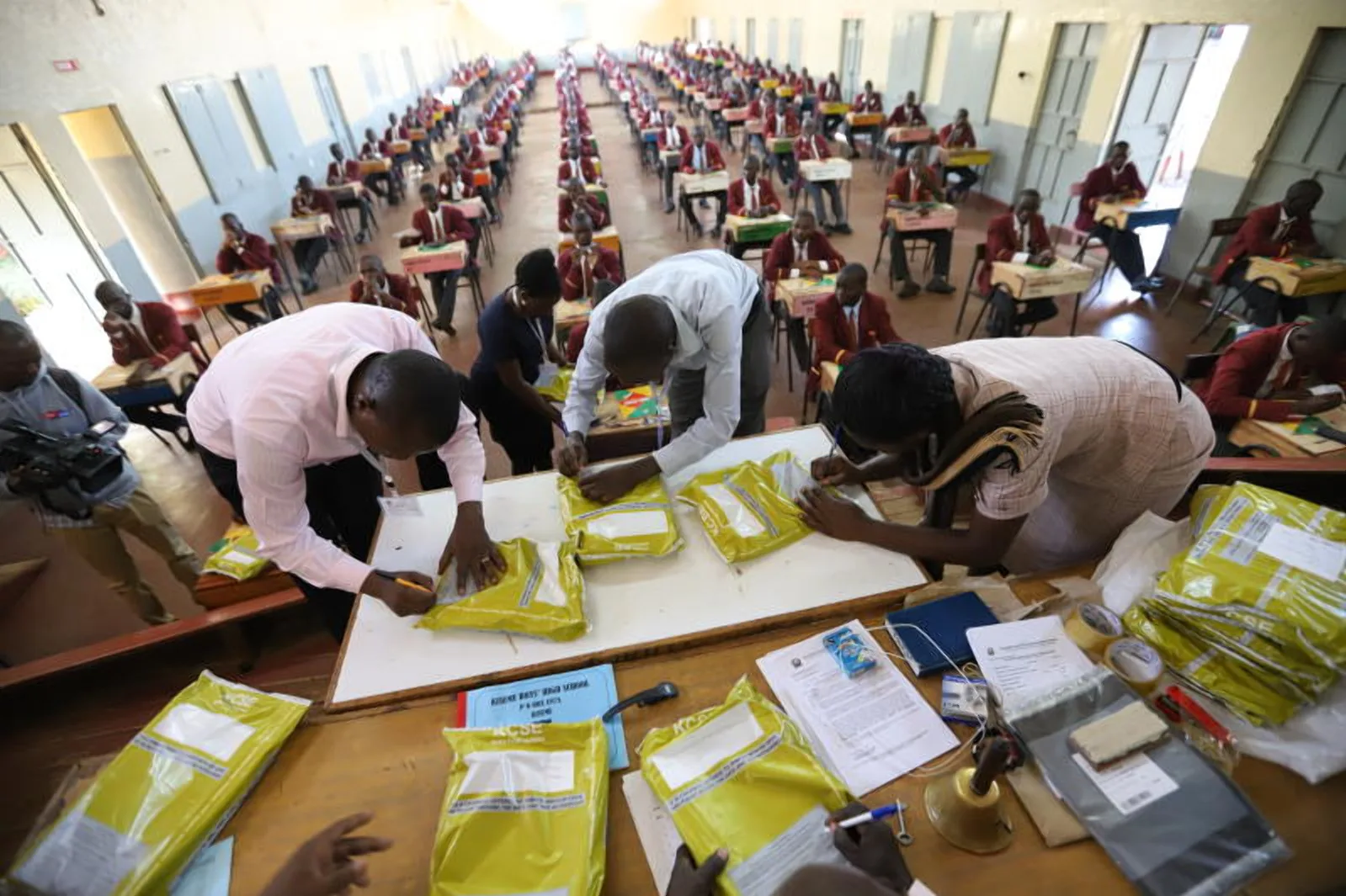Schools Hit by Student Decline Amid KCSE Exam Ban.
The suspension of the newly introduced Kenya Certificate of Secondary Education (KCSE) July examination for repeat candidates has put schools at risk of yet another financial crisis.
Both public and private secondary schools are currently facing a sharp decline in student enrolment due to the absence of Form One admissions this year.
This decline has significantly impacted school funding, with public institutions struggling as government capitation drops and private schools experiencing financial strain due to lower fee collections.
Additionally, the restriction placed on repeat candidates has complicated efforts to bolster student numbers, further worsening the financial situation in secondary schools.
Court Order Halts Government’s Plans
The government’s attempt to establish the KCSE July exam as the exclusive option for repeat candidates was halted by the High Court in Kisii. The case, filed by Magare Gikenyi, challenged the decision, citing inadequate public participation.
The Kenya National Examination Council had only registered candidates for three days before the court intervened, effectively stopping the process.
Basic Education Principal Secretary Belio Kipsang confirmed that the Ministry of Education was complying with the ruling. He stated that the court had issued an injunction, requiring them to respond to the case.
Kipsang reassured that while no learner would be disadvantaged, the halt had deprived students of an opportunity to retake exams swiftly.
Meanwhile, Education Cabinet Secretary Julius Ogamba acknowledged the concerns raised, indicating that discussions were ongoing to explore alternatives.
He noted that some students preferred repeating an entire academic year before retaking the exam, and the ministry was considering ways to accommodate them.
Debate Over Schools’ Dependence on Repeat Students
Kenya Private Schools Association Chairman Charles Ochome refuted claims that private institutions target repeat candidates to boost their mean scores.
He argued that most repeat students opt for private schools due to the challenges in securing admission in public institutions. According to him, repeating is a personal choice, and schools do not actively recruit repeat candidates.
However, Kenya Secondary Schools Heads Association Chairman Willy Kuria disputed the notion that repeat students provide schools with financial benefits. He explained that while there are over 10,000 secondary schools in the country, repeat students account for a small percentage of total candidates.
At most, he estimated that schools could expect around ten repeat students, which is insufficient to supplement lost funding caused by the decline in student enrolment.
Education Stakeholders React to Suspension
The restriction of repeat candidates to the July exam had sparked backlash from education stakeholders, including teachers’ unions and parents’ associations.
Kenya Union of Post Primary Education Teachers Deputy Secretary-General Moses Nthurima welcomed the court’s decision, noting that teachers were concerned about the limited preparation time repeat candidates would have had.
Meanwhile, private school proprietors have strongly opposed the suspension of the examination. A private school director from Nakuru lamented that they had anticipated repeat students to help maintain enrolment numbers and sustain school budgets.
Financial and Academic Implications for Schools
For many institutions, repeat students were viewed as a way to mitigate financial difficulties. Public schools rely on government capitation, which is allocated per student, meaning fewer students result in reduced funding.
On the other hand, private schools are struggling to maintain operations as they experience lower fee collections.
Read Also: NTSA Introduces Stricter Regulations for School Transport Safety
Some schools, particularly those aiming to improve or maintain their national rankings, had strategically targeted students who performed moderately well in previous exams but fell short of top grades.
These students, with minimal preparation, could significantly enhance their grades and, in turn, elevate the school’s mean score.
For such institutions, this was a strategic approach to not only strengthen their academic reputation but also attract more students in the future. However, with the suspension of the repeat exam, schools now face financial uncertainty and the challenge of maintaining their academic standing.
Schools Hit by Student Decline Amid KCSE Exam Ban
Follow Teachers Updates on Facebook, LinkedIn, X (Twitter), WhatsApp, Telegram, and Instagram. Get in touch with our editors at [email protected].


Discussion about this post